Heading into the 2019 offseason, 27 veterans held player options on their contracts, allowing them to either opt in for the 2019/20 season or opt out and reach the open market. Of those 27 players, a dozen decided to turn down their options and become free agents.
For some players, that decision was a simple one. Kyrie Irving, for instance, was never going to exercise his $21.3MM option with the Celtics, since opting out allowed him to get a raise, gain long-term security, and land with his preferred team.
The decision wasn’t so easy for every player who opted out though. Now that most of those 12 veterans have officially signed new contracts and the salary details are in, we want to look back on those decisions and see if they paid off.
Let’s dive in…
Opting out was definitely the right call:
- Kevin Durant
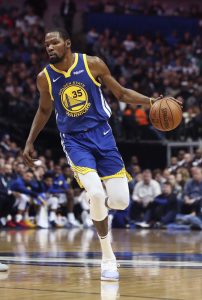
- Option: $31,500,000 (Warriors)
- New contract: Four years, $164.3MM (Nets)
- Kyrie Irving
- Option: $21,329,752 (Celtics)
- New contract: Four years, $136.5MM (Nets)
- Kawhi Leonard
- Option: $21,329,752 (Raptors)
- New contract: Three years, $103.1MM (Clippers)
- Jimmy Butler
- Option: $19,841,627 (Sixers)
- New contract: Four years, $140.8MM (Heat)
- Khris Middleton
- Option: $13,000,000 (Bucks)
- New contract: Five years, $177.5MM (Bucks)
- Julius Randle
- Option: $9,073,050 (Pelicans)
- New contract: Three years, $56.7MM (Knicks)
These six players were among free agency’s biggest winners. Durant, Leonard, and Butler landed maximum-salary contracts, Irving can reach the max via incentives, and Middleton secured more overall guaranteed money than all of them. Randle’s overall payday paled in comparison to the others, but it was still a no-brainer for him to turn down his option to return to New Orleans.
All six of these players will receive significant raises for the 2019/20 season over what they could have received on their options, and they all scored multiyear contracts.
Opting out hurt a little in the short term, but will pay off in the long term:
- Al Horford
- Option: $30,123,015 (Celtics)
- New contract: Four years, $109MM (Sixers)
- Harrison Barnes
- Option: $25,102,512 (Kings)
- New contract: Four years, $85MM (Kings)
- Jonas Valanciunas
- Option: $17,617,976 (Grizzlies)
- New contract; Three years, $45MM (Grizzlies)
Horford, Barnes, and Valanciunas will earn less in 2019/20 than they would have if they’d picked up their respective options. But that modest trade-off was worth it for the long-term security.
Horford and Barnes each tacked on upwards of $60MM+ in total guaranteed money to their contracts by opting out. Valanciunas, meanwhile, will accepted a pay cut of about $1.6MM this season in order to secure an extra two years and $29MM on his new deal.
It’s essentially a wash:
- Nerlens Noel
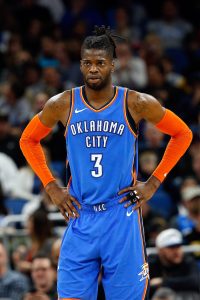
- Option: $1,988,119 (Thunder)
- New contract: One year, $2MM (Thunder)
- James Ennis
- Option: $1,845,301 (Sixers)
- New contract: Two years, $4MM (Sixers)
Noel and Ennis each had minimum-salary options on their contracts. They opted out and signed for… the minimum.
It wasn’t a huge win for either player, but they can each at least claim they’ll be making more in 2019/20 than they would have if they’d opted in. Noel’s salary increased from $1,988,119 to $2,028,594, while Ennis gets a slight bump from $1,845,301 to $1,882,867 (his second year is another player option).
The jury’s still out, but it’s not looking great:
- Nene
- Option: $3,825,360 (Rockets)
- Remains unsigned
The only unsigned player on this list, Nene is unlikely to match the $3.8MM salary he would have earned with the Rockets. Still, if he can catch on with an NBA team on a minimum deal, he’ll at least recoup a good chunk of his lost money — the 2019/20 veteran’s minimum for a player with his experience is $2,564,753.
Photos courtesy of USA Today Sports Images.
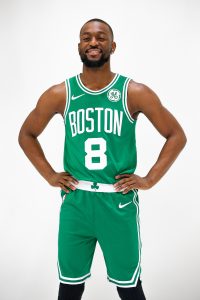
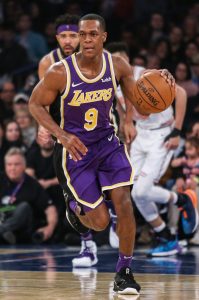
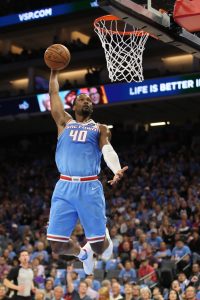
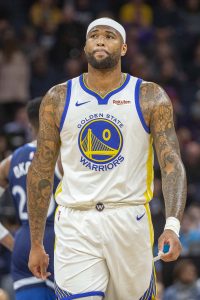 his third serious injury in the past 19 months,
his third serious injury in the past 19 months, 
